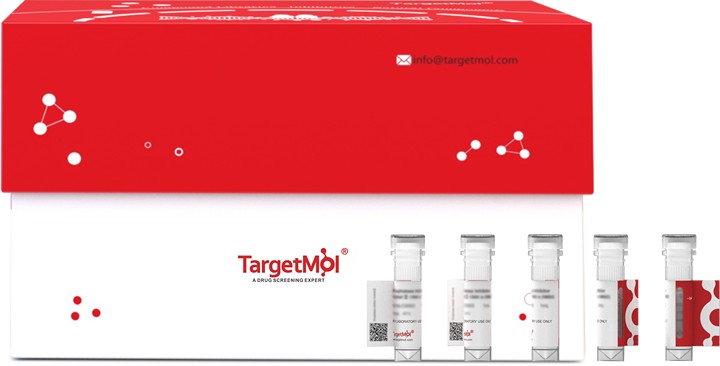Shopping Cart
- Remove All
 Your shopping cart is currently empty
Your shopping cart is currently empty

RPS3 Protein, Human, Recombinant (His) is expressed in E. coli expression system with C-6xHis tag. The predicted molecular weight is 27.5 kDa and the accession number is P23396.

| Pack Size | Price | Availability | Quantity |
|---|---|---|---|
| 20 μg | $360 | 20 days | |
| 100 μg | $745 | 20 days | |
| 1 mg | $2,530 | 20 days |
| Biological Activity | Activity has not been tested. It is theoretically active, but we cannot guarantee it. If you require protein activity, we recommend choosing the eukaryotic expression version first. |
| Description | RPS3 Protein, Human, Recombinant (His) is expressed in E. coli expression system with C-6xHis tag. The predicted molecular weight is 27.5 kDa and the accession number is P23396. |
| Species | Human |
| Expression System | E. coli |
| Tag | C-6xHis |
| Accession Number | P23396 |
| Synonyms | Small ribosomal subunit protein uS3,RPS3,40S ribosomal protein S3 |
| Amino Acid | AVQISKKRKFVADGIFKAELNEFLTRELAEDGYSGVEVRVTPTRTEIIILATRTQNVLGEKGRRIRELTAVVQKRFGFPEGSVELYAEKVATRGLCAIAQAESLRYKLLGGLAVRRACYGVLRFIMESGAKGCEVVVSGKLRGQRAKSMKFVDGLMIHSGDPVNYYVDTAVRHVLLRQGVLGIKVKIMLPWDPTGKIGPKKPLPDHVSIVEPKDEILPTTPISEQKGGKPEPPAMPQPVPTA |
| Construction | 2-243 aa |
| Protein Purity | > 90% as determined by SDS-PAGE. |
| Molecular Weight | 27.5 kDa (predicted) |
| Endotoxin | < 1.0 EU/μg of the protein as determined by the LAL method. |
| Formulation | If the delivery form is liquid, the default storage buffer is Tris/PBS-based buffer, 5%-50% glycerol. If the delivery form is lyophilized powder, the buffer before lyophilization is Tris/PBS-based buffer, 6% Trehalose, pH 8.0. |
| Reconstitution | Reconstitute the lyophilized protein in sterile deionized water. The product concentration should not be less than 100 μg/mL. Before opening, centrifuge the tube to collect powder at the bottom. After adding the reconstitution buffer, avoid vortexing or pipetting for mixing. |
| Stability & Storage | Lyophilized powders can be stably stored for over 12 months, while liquid products can be stored for 6-12 months at -80°C. For reconstituted protein solutions, the solution can be stored at -20°C to -80°C for at least 3 months. Please avoid multiple freeze-thaw cycles and store products in aliquots. |
| Shipping | In general, Lyophilized powders are shipping with blue ice. Solutions are shipping with dry ice. |
| Research Background | Involved in translation as a component of the 40S small ribosomal subunit. Has endonuclease activity and plays a role in repair of damaged DNA. Cleaves phosphodiester bonds of DNAs containing altered bases with broad specificity and cleaves supercoiled DNA more efficiently than relaxed DNA. Displays high binding affinity for 7,8-dihydro-8-oxoguanine (8-oxoG), a common DNA lesion caused by reactive oxygen species (ROS). Has also been shown to bind with similar affinity to intact and damaged DNA. Stimulates the N-glycosylase activity of the base excision protein OGG1. Enhances the uracil excision activity of UNG1. Also stimulates the cleavage of the phosphodiester backbone by APEX1. When located in the mitochondrion, reduces cellular ROS levels and mitochondrial DNA damage. Has also been shown to negatively regulate DNA repair in cells exposed to hydrogen peroxide. Plays a role in regulating transcription as part of the NF-kappa-B p65-p50 complex where it binds to the RELA/p65 subunit, enhances binding of the complex to DNA and promotes transcription of target genes. Represses its own translation by binding to its cognate mRNA. Binds to and protects TP53/p53 from MDM2-mediated ubiquitination. Involved in spindle formation and chromosome movement during mitosis by regulating microtubule polymerization. Involved in induction of apoptosis through its role in activation of CASP8. Induces neuronal apoptosis by interacting with the E2F1 transcription factor and acting synergistically with it to up-regulate pro-apoptotic proteins BCL2L11/BIM and HRK/Dp5. Interacts with TRADD following exposure to UV radiation and induces apoptosis by caspase-dependent JNK activation. |

Copyright © 2015-2025 TargetMol Chemicals Inc. All Rights Reserved.